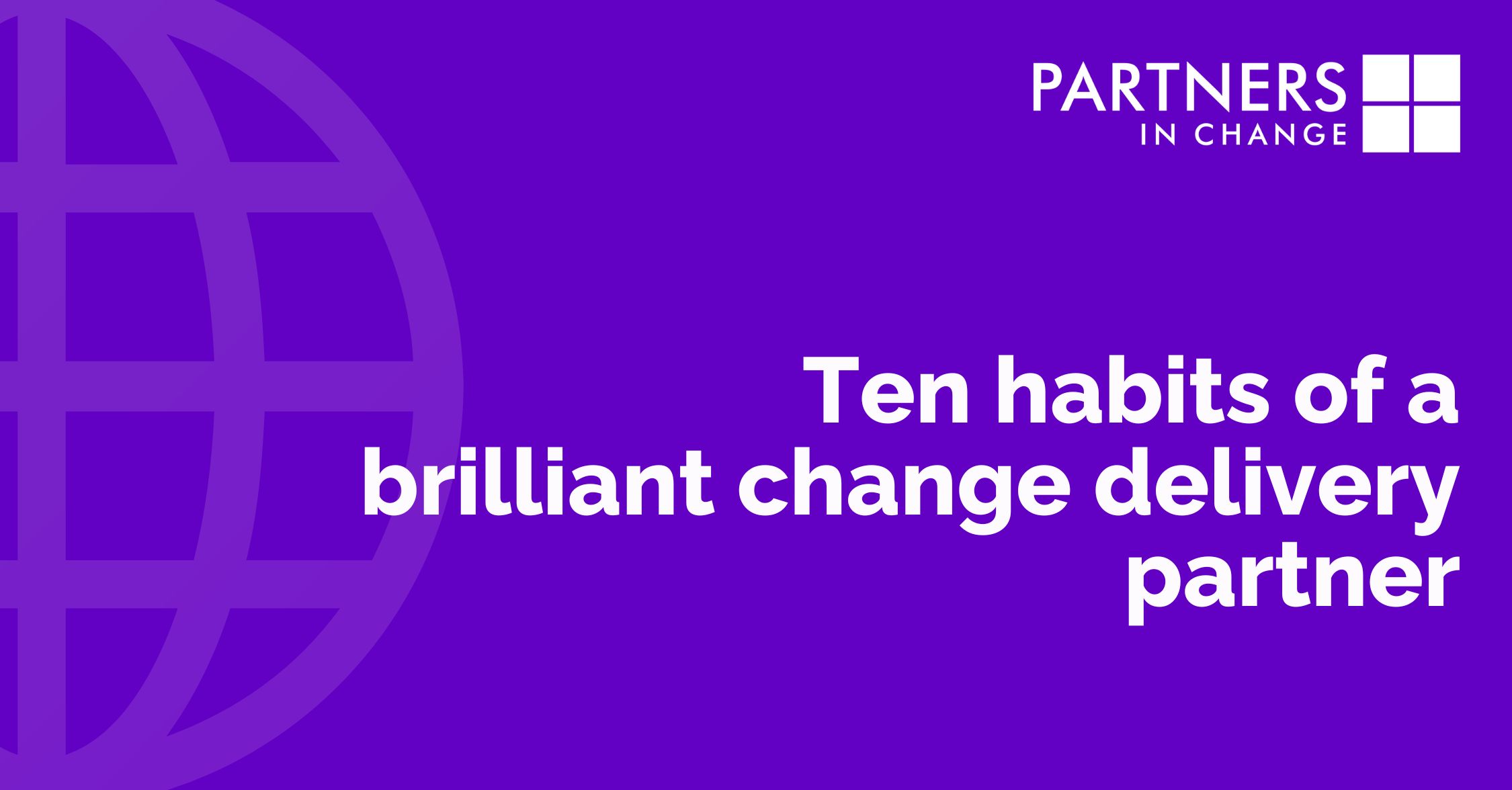10 habits of a brilliant change delivery partner
By Dave Jepson — July 8, 2025

Organisational change is always challenging and as the pace of tech innovation continues to accelerate the imperative for change has never been greater.
All of this means change is a constant for many organisations with the need for ‘right first time’ implementation more important than ever.
Identifying exactly what you want to achieve and then selecting the most cost effective solution are of course important part of the equation. Yet making that change happen effectively and efficiently calls for an entirely different set of skills.
In this article we explore the habits of a brilliant change delivery partner, outlining the day-to-day activities and actions that, over the course of a change programme, adds up to a much-improved likelihood of success, smarter spending and fewer delays. The habits listed provide the foundation from which a strong, enduring and trust-based partnership can flourish.
About the list
We’ve compiled the list from both ‘supplier’ and ‘buyer’ points of view and selected the habits that we think form the foundations of a brilliant delivery partner.
We’ve kept it short – there are many other ‘micro habits’ – but we consider this set of habits most likely to drive programme success.
Habit #1
They truly understand your case for change, outcomes, constraints, context and culture.
To truly understand what needs to be done to successfully deliver complex change it is important to explore the five dimensions mentioned above. This involves your partner asking questions and listening hard to your answers.
A quick conversation once the work is won isn’t enough; taking the time to understand each element before a team and approach is shaped helps identify the right experience, personalities and expertise required to get change done efficiently and effectively.
Habit #2
They challenge your thinking, making you a better change leader.
As organisations make decisions around complex change tasks, many influences come into play. By simply doing what the client asks, change suppliers may avoid difficult conversations and may even benefit from extra work once mistakes made.
A brilliant change partner will challenge decisions, sometimes disagree (without being disagreeable) and spend time outlining their position drawing on many experiences to illustrate their viewpoint.
Habit #3
Communication is regular and frequent, based on a consistent and independent narrative.
Resistance to change comes in all sorts of forms and can undermine the best planned activities. By regularly communicating with stakeholders, sticking to a consistent and independent narrative revealing both highs and lows, everyone feels informed and in the loop.
Habit #4
There are no surprises; every issue is flagged as soon as it is uncovered.
Any deviation from the plan as it stands should be communicated at the earliest opportunity. This buys time to mitigate potential issues and reinforces trust in the client / advisor partnership.
Habit #5
Day to day conversations never feel like a sales pitch.
Suppliers who turn every conversation into a new sales opportunity soon lose credibility. Occasionally issues will be uncovered in the course of delivery that require additional unforeseen work. However, using every conversation as a sales generation exercise dilutes trust.
Habit #6
The team you were sold is the team delivering for you on the ground.
Many buyers tell stories of impressive sales pitches attended by a small army of experts seemingly ready to work on the upcoming project if won. All too often those specialists disappear and are replaced with less capable and less experienced resources.
Habit #7
The team brings deep expertise and highly relevant experience.
Delivering change requires rare skills and specific experience. That experience may relate to a specific technology or the unique nature of a particular industry. Either way, without that experience, even those with the best academics and exemplary attitude will struggle to make things happen effectively and efficiently.
Habit #8
They adapt quickly as the needs of the programme evolve.
Programme requirements inevitably change over time. Those suppliers pre-occupied with team utilisation love to sell lengthy blocks of full-time resource across the entirety of a programme. In reality, requirements ebb and flow and different skills are needed in variable proportions over time.
Habit #9
They regularly seek and react to feedback from multiple stakeholders.
Seeking feedback at every opportunity from multiple individuals provides a 360-degree view on how a partner is perceived. It is additionally useful in that it will often reveal both views on the change partner and views on the programme of change allowing both internal owners and vendors to make early interventions.
Habit #10
They leave behind a legacy of change excellence that delivers long into the future.
Brilliant delivery partners seek to improve client organisations beyond the immediate programme. Day to day interactions with the in-house team allow them to transfer best practice and ways of working that persist long after an individual programme of work has finished.
If your current change partner isn’t delivering the quality of day to day service you need, please don’t hesitate to get in touch by emailing dave.chatham@picconsulting.co.uk.
Visit our website: picconsulting.co.uk



Recent Posts